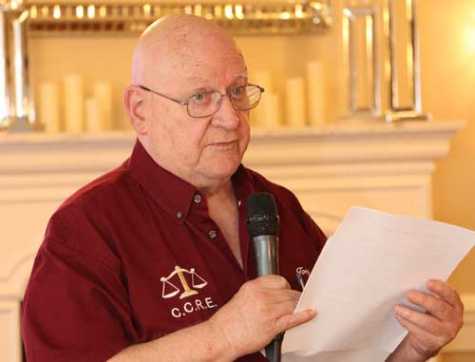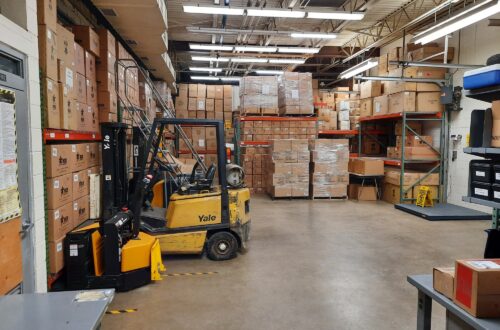CCRE President Tony Lombardozzi Shares Views on NH House Bill 664
Tuesday, 05 February 2019 18:44
Featured in AUTOBODYNEWS

Tony Lombardozzi, president of the Coalition for Collision Repair Excellence (CCRE)
ASA recently announced its support of NH House Bill 664. The bill states, “An insurer shall reimburse a repairer for all repairs if a repairer follows original equipment manufacturer-recommended collision repair procedures, recommendations or service bulletins while repairing a vehicle.”
ASA Washington D.C. representative Bob Redding wrote in a letter to the committee: “House Bill 664 addresses an issue of concern for consumers and repairers. The Seebachan v. John Eagle Collision Center decision reminded collision repairers of the importance of having proper repair procedures. The original equipment manufacturers’ (OEM) repair procedures are the logical repair processes to be followed.”
On the other hand, Tony Lombardozzi, president of the Coalition for Collision Repair Excellence (CCRE), believes, “This bill looks good on the surface but has some hidden flaws if you read the language carefully. You have to read into the wording to understand what they’re saying, and this wording favors insurers—there’s no other way to read it.
“First off, take the word ‘reimburse.’ It seems to make a lot of sense, but now they’ve put the repair shop as the provider to the insurer, which leaves the vehicle owner out of the equation. The contract between the shop and the consumer is a separate contract from the one between the consumer and the insurer. Insurers do not reimburse repair shops; they’re supposed to either pay or reimburse their insureds for the actual cost of the repairs. Period.
“An insurance policy is not a reimbursement policy. It’s an actual cash value policy based on indemnification. Talking about reimbursement rates gets us away from policy indemnification, and it turns policies into a schedule of benefits, which they are not. This bill would turn the collision shop into a supplier of services to the insurer if they follow OEM guidelines. When shops become a supplier to the insurer instead of the consumer, consumers get left out of the triangle. You cannot serve two masters.”
Pointing out that HB664 also fails to address the issue of aftermarket parts, Lombardozzi said he questions whether insurers will continue using aftermarket parts because many OEMs do not actually require the use of original parts in their repairs. He said he also ponders what will happen when OEM procedures are unavailable and whether insurers will feel they do not have to pay for repairs when OEM guidelines are not there to follow.
Lombardozzi said he is also concerned that this law is going to impact information provider databases, which are the “major tool used by insurers to control pricing across the country.” He noted the difficulty of determining a “reasonable rate” because the insurance industry often relies on averages, which are not the same as reasonable prices.
“In this industry, we often get hooked on things that are meaningless. This concept of averages is meaningless to me. Instead, the prevailing rate is defined by economists as the highest rate a consumer will accept before walking away,” he said. “On the surface, this bill makes it look like the consumer is going to get an OEM repair from the body shop, but a very important aspect that’s missing in all of this is the fact that the insurance policy is an indemnification policy. The insurer must make you 100 percent whole, minus any deductible. With this law, it’s very likely that insurers will underwrite the value of a loss until the insured brings the vehicle in to be repaired.”
Lombardozzi identified two major issues associated with this possibility. The first is that the insurer would be forcing the insured to get their vehicle repaired, which is not required in New Hampshire. The second is that consumers who do not get their vehicle repaired would not receive the full value of their loss.
“The word ‘if’ is a big problem. Consumers are entitled to the actual cash value of their loss and can spend that money however they see fit, but if they decide not to repair their vehicle, they will not actually receive the true cash value of their loss,” he said.
A fiscal note released by the New Hampshire Department of Insurance indicated the expectation that passage of HB644 would lead to an increase in complaints received by its office.
Lombardozzi asked, “What’s the percentage of shops in New Hampshire that is capable of repairing vehicles to OEM recommendations? I bet it’s way less than 50 percent. If a collision repair shop does most of the OEM repair procedures but not all of them, is it entitled to get paid as if it did them all, or does it only get paid for the repairs completed according to OEM recommendations? The language is crazy. It will probably increase complaints to the insurance department, but who cares.”
Proponents of the bill are proud to say they have not received much opposition from insurance companies other than threats of increased premiums, which is a typical threat.
“Premiums never go down in this state or any other state anyway,” Lombardozzi quipped. “Insurers aren’t complaining about this proposed bill, but why should they? It gives them a license to cheat consumers out of their rightful cash value. If 30 percent of people opt not to get their car repaired, it allows the insurer to underwrite the value of the loss legally since the law only applies if the vehicle is repaired. This is what happens when you have shop owners who want to interfere in the business of insurance and have no idea what they are trying to do.
“House Bill 664 is just a new example of the collision repair industry interfering with the insurance industry. Who cares what insurers pay. They pay their insureds for a covered loss, and it’s the shop’s responsibility to correctly repair the vehicle. The contract spells out exactly what they owe their insureds. Collision repair people get ticked off when insurers interfere in our business, so they should be more focused on getting the insurance industry out of the collision repair industry’s business. There are lots of laws on the books to prevent their interference, but it doesn’t benefit anyone if we start doing to them what we don’t want them doing to us! In my opinion, this will get passed because insurers know it’s more beneficial to them than to the body shops. Too often, attempts to improve the industry through legislation backfire in our faces.”


